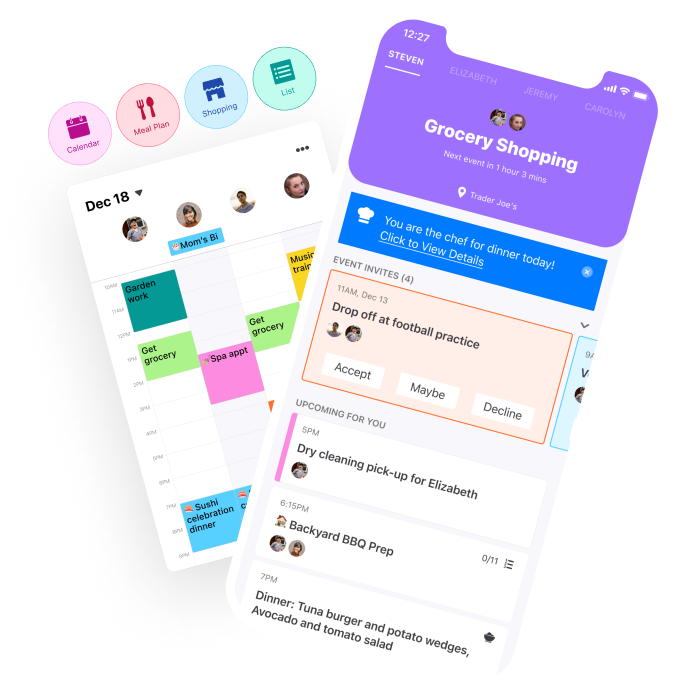How to Create an Effective Weekly Chore Chart Your Kids Will Follow
Parents everywhere know the struggle—asking children to help around the house often leads to negotiations, delays, and sometimes outright refusals.
What should be a simple request to put away toys or clean a bedroom can turn into an extended discussion that leaves everyone frustrated.
Creating an effective chore system isn't just about cleaner floors; it's about building responsible adults who understand that contribution matters.
Why Children Should Participate in Household Chores
When children help around the house, they gain much more than a clean living space. Regular chores help kids develop essential life skills they'll need throughout adulthood. From the preschool years through the teenage years, age-appropriate responsibilities teach children how to be capable, independent individuals.
The benefits of establishing a regular chore routine extend far beyond a tidy home:
Children learn valuable planning and time management skills
They develop a stronger sense of belonging and contribution to the family unit
Mastering new tasks builds self-confidence and competence
Kids begin understanding work ethic before entering the workforce
Families function more smoothly when everyone pitches in
Most parents intuitively understand that teaching children to help around the house prepares them for real-world responsibilities. The key is finding the right balance—challenging children enough to grow their abilities without overwhelming them with tasks beyond their developmental stage.
Complete Guide to Age-Appropriate Chores for Children Ages 3-17
The key to chore success lies in matching tasks to developmental abilities. A 4-year-old shouldn't be operating power tools, and a teenager shouldn't only be responsible for picking up toys.
Preschoolers (Ages 3-5):
Put toys away
Feed pets (with supervision)
Help set the table
Put dirty clothes in the hamper
Dust low surfaces
Elementary Age (Ages 6-9):
Make bed
Empty small trash cans
Water plants
Help with meal prep
Fold and put away simple laundry
Tweens (Ages 10-12):
Load/unload dishwasher
Vacuum and sweep
Help prepare simple meals
Take out the trash
Clean the bathroom sink and counter
Teens (Ages 13+):
Laundry (sorting, washing, folding)
Deeper cleaning tasks
Meal planning and preparation
Yard work
Helping with younger siblings
With Family Daily's powerful to-do lists, you can create personalized chore lists for each child based on their age and abilities. The app allows you to set due dates, track progress, and ensure everyone knows their responsibilities.
Top 4 Chore Chart Systems That Guarantee Consistency
The perfect chore system balances structure with flexibility. Consider these approaches:
Visual Charts for Younger Children: Young children respond well to visual cues. Create a simple chart with pictures of tasks alongside checkboxes or slots for moving task markers from "to do" to "done."
Digital Systems for Older Kids: Tweens and teens typically respond better to digital systems that mirror how they already interact with technology. This is where Family Daily's shared to-do list functionality becomes invaluable.
Rotating vs. Fixed Responsibilities: Some families find success with a rotation system where responsibilities change weekly, preventing boredom and building diverse skills. Others prefer consistency with fixed chores that build mastery.
Proven Motivation Techniques That Work Better Than Allowance
While external rewards have their place, research from Edward Deci and Richard Ryan's Self-Determination Theory shows that intrinsic motivation ultimately creates longer-lasting positive behaviors.
Effective motivation approaches include:
Connection to Values: Explain how chores contribute to family wellbeing rather than just demanding compliance.
Autonomy: Giving children choice within structure increases ownership. "Would you like to empty the dishwasher before or after dinner?" works better than "Empty the dishwasher now."
Recognition: Acknowledge effort and improvement, not just completed tasks.
Natural Consequences: When appropriate, let natural outcomes teach lessons. If toys aren't put away, they might temporarily "go on vacation."
With Family Daily's shared family calendar, you can schedule regular family meetings to discuss how the chore system is working and make adjustments together, fostering a spirit of teamwork rather than top-down enforcement.
Transform Your Family's Chore Experience Today
Creating an effective chore system isn't about perfect compliance or immaculate homes. It's about gradually building responsibility, contribution, and life skills that benefit children long after they leave your home.
The right system works with your family's unique dynamics while teaching valuable skills. Family Daily helps simplify this process with shared to-do lists, reminders, and progress tracking—all in one convenient app that the whole family can access.
Ready to end chore battles for good? Download Family Daily today and start creating a chore system that works for everyone.


